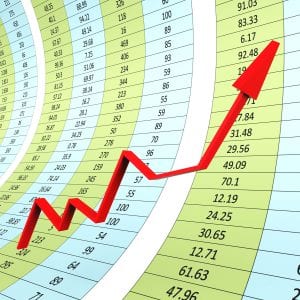Mechanical Trading Systems: Analyzing Markets and Trends with Precision
Aug 26, 2023
We’ve been led to believe that mastering mechanical systems and fundamental analysis is essential for achieving market success. However, let’s take a step back and consider that fundamental analysis is a hidden mechanical system. It presents standardized data, making it understandable for anyone with minimal effort. Similarly, automated trading systems offer a set of rules that, when followed, transform traders into robotic adherents of a routine.
Here enters the paradox theory, which posits that we often obtain the opposite of what we pursue. In the financial markets, it’s evident that the majority must lose for the big players to profit. This is why the 90/10 ratio remains relatively unchanged, with 90% representing the percentage of losers and 10% representing the percentage of winners.
Exploring why mechanical trading systems are destined to fail could delve into intricate details that might lull you to sleep. Let’s briefly focus on the term “mechanical” to keep things engaging. According to Merriam-Webster’s online dictionary, one definition of mechanical is “done as if by a machine: seemingly uninfluenced by the mind or emotions.”
The Human Element: A Vital Factor Ignored by Mechanical Trading Systems
In essence, relying solely on mechanical trading systems overlooks the critical role of human judgment, intuition, and emotional intelligence in navigating the markets successfully.
Notice that the keywords here are “uninfluenced by the mind or emotions.” First, the market is nothing but a composition of a million reasons. Therefore, utilizing a system based on the rules set forth by one person’s mind and, worse still, devoid of any mental influence is a recipe for disaster. Secondly, the marketplace is a swirling pool of emotions: lust, greed, power, hate, fear, etc., moving through the markets like a hurricane descending on a village of huts, ready to decimate everything in sight. The above definition of mechanical is enough to make you want to flee from any such system.
Mechanical Trading Systems’ Limits: Overlooking Human Mind and Emotions
Delving into why mechanical trading systems are bound to fail can become intricate and potentially dull. Let’s focus on the term “mechanical” to keep things engaging. According to Merriam-Webster’s online dictionary, one definition of mechanical is “done as if by a machine: seemingly uninfluenced by the mind or emotions.”
Consider the keywords “uninfluenced by the mind or emotions.” Firstly, the market consists of countless individuals with thoughts and emotions. Relying on a system created by a single individual’s mind, detached from any mental influence, can lead to disastrous outcomes. Secondly, the market is a whirlwind of emotions, including lust, greed, power, hate, and fear. These emotions permeate the market like a hurricane approaching a vulnerable village, ready to wreak havoc on everything in its path. The definition of “mechanical” alone is enough to make one want to steer clear of such systems.
It’s important to recognize that the market is not solely driven by numbers and rules but also by the complex interplay of human psychology and emotions. Ignoring the power of human judgment, intuition, and emotional intelligence in navigating the markets successfully can be a significant oversight.
The Intriguing Language of the Markets: Analyzing the Psychological Impact
How we represent the market and our positions within it through language reveals underlying psychological tendencies. Terms like bullish and bearish, which express market optimism and pessimism, respectively, seem to involve choosing some of the most irrational and easily provoked animals. It’s almost as if we possess an unconscious desire to embrace a syndrome of programmed loss.
Moreover, when discussing specific sectors, we use terms like bugs, such as Internet bugs or gold bugs. Intriguingly, we associate ourselves with a creature as unpleasant as bugs to represent our positions and views. Most humans react negatively to bugs, often instinctively wanting to crush them.
Even the language used in market discussions reflects psychological nuances. Terms like scalp, plunge, upthrust, perfect bottom, down thrust, flip, and climactic sell-off carry emotional connotations and depict intense market movements. This highlights how our language is intertwined with the psychological impact of market experiences.
By recognizing the underlying psychological elements in the language of the markets, we can gain insight into the intricate dynamics at play. It reminds us to approach the markets with a level-headed mindset, considering the psychological biases and influences that can shape our decisions.
Repeating the Mistakes: A Cycle of Primitive Views and Grandiose Errors
The most unfortunate aspect is that we pass nothing new to the next generation. Instead, we reinforce these primitive views or engrave them into the memory of the next generation to more accurately describe the process. Is it any wonder that we keep replicating the errors of the previous generation but do so in a much grandiose manner? Just look at the speculative phase we’ve entered now (credit bubble, real estate bubble, and so on).
It makes all the mistakes our ancestors made seem insignificant in comparison. We burden ourselves with debt up to our necks to purchase items we don’t need and use money we don’t possess to pay for them. The real estate bubble is a classic example of madness and history repeating itself enormously. Individuals take home equity loans against the rising values of their homes and use this to finance their extravagant lifestyles. Is there anything more absurd than obtaining credit to purchase something on more credit?
Revealing the Game: Mastering the Art of Mechanical Trading System
In stock market analysis, a crucial aspect that often goes unnoticed is viewing the markets as a game and delving into the intricacies of mass psychology and individual behaviour. Additionally, proficiency in a few subjective Technical Analysis (TA) tools becomes paramount. It’s important to acknowledge that these tools should never be standardized; instead, they should embrace the concept that “beauty lies in the eye of the beholder.”
Each individual should perceive something unique when utilizing these indicators, allowing for diverse interpretations. By mastering this adaptable approach, one can achieve long-term success in the market, as it defies the limitations of standardization.
Ultimately, the effectiveness of Technical Analysis of Stocks hinges on its alignment with our lifestyle and collective mindset. It mirrors the patterns of the 9-5 routine and the conformity that pervades our society, where individuality takes a backseat. A mechanical system epitomizes our inclination to evade critical thinking and yearn for straightforward solutions.
However, suppose we persistently accept handed-down solutions and bemoan our situation when confronted with challenges. In that case, we remain ensnared in a cycle of repeating historical mistakes extravagantly—the key to breaking free lies in the courageous act of independent thinking and mental engagement. Mistakes, when embraced as opportunities for learning, can foster growth, whereas perpetuating someone else’s errors only leads to self-destruction.
Mechanical trading systems: Personalization is Crucial
At the very least, some customization should be attempted so that the system is tailored to one’s individual needs. It astounds me that the world’s most straightforward and most effective technique is not more widely studied or followed. The method I refer to is trend analysis: all you need to do is identify a new trend and stay invested until the trend reverses. Trend analysis involves drawing simple lines; while it requires a bit of practice, its benefits are invaluable.
So, let’s examine the type of system that can genuinely succeed in the markets. First and foremost, it’s essential to understand the distinction between contrarian investing and investing based on mass psychology. Contrarian investing is straightforward as it essentially involves competing against the crowd. Mass psychology gauges the periods of frenzy or extreme emotions such as hate or disgust towards a specific sector or sectors, and then positions are taken during these intense times.
Furthermore, it assesses the level of euphoria among those who believe in the investment. In other words, it quantifies how many of the so-called contrarians are now extraordinarily bullish and euphoric about a given sector. In most instances, when a contrarian takes a position in a particular sector, they are doing so as a countermove to what the majority is doing.
Unveiling the Phases: Contrarians, Mass Psychology, and Trading Success
Returning to the main topic, even most contrarians often feel nervous and frequently check their positions to ensure that the market has reached its lowest point, at the very least. Once the sector begins to show positive returns, their nervousness subsides, and they become highly bullish, entering a phase of euphoria. This is where mass psychology becomes profoundly relevant. At this stage, wise investors should consider exiting the market. While they might not sell at the absolute peak, they will likely be close to it.
Understanding mass psychology is a crucial and integral part of any trading system.
Secondly, it is crucial to master various technical analysis (TA) tools and avoid using them in a standardized manner.
Thirdly, patience and discipline are key. It is essential to recognize that extended waiting periods before taking a position are possible, but those who exercise patience can reap rewards in weeks.
By following these principles, investors can navigate the complex trading world with more insight and success.
Captivating Articles That Leave a Lasting Impression

US dollar vs Japanese Yen: No Bottom In Sight For Yen

ChatGpt vs Google bard: A Poetic Showdown

How to Make Organic Tortillas: A Step-by-Step Guide

De-Stress Meaning: Discover the Art of Relaxation

Stock Market Predictions 2023:Unveiling Market Trends

The Rich Get Richer and the Poor Get Prison

Recession: Best Time to Invest in Real Estate

The Banksters Club: Weapons of Mass Destruction Agenda

Fiat Fun: Unveiling the Source of Problems

How Often Should You Shower
The Free Market System Is Dead: The Fed Killed It

Why the US Medical System is Broken?

Define Fiat Money in Economics: The USD is A prime example

United States Sanctions on Russia: Pressuring Europe to Comply

Financial Instability: 40% of Americans Can’t Handle $400 Emergencies
Mastering Finance: Beware the Pitfalls of Fear Selling



